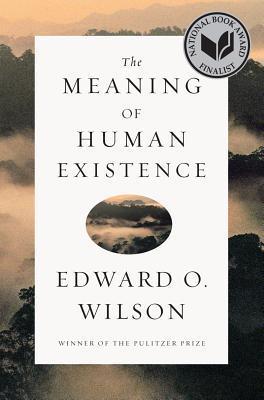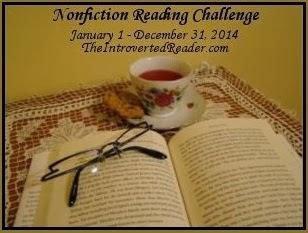Book: The Meaning of Human Existence by Edward O. Wilson
Genre: nonfiction
Publisher: Liveright
Publication date: 2014
Pages: 207
Source: Library

lots of wisdom, here, even if it doesn’t quite add up to the title
Summary: A slim book of essays by a scientist who specialized in ants but, in his later life, has taken on the privilege and responsibility of the elder to analyze and synthesize in both scientific and philosophical ways to figure out what it all means and where we go from here.
Thoughts: Rick and I read this together. Since I read more quickly, he handed it to me first. When he took it back, he read from where he was to my bookmark and then gave it back to me. We ended up with lots to discuss.
Rick most liked the illumination of the damage that religion has inflicted on the world.
Unfortunately a religious group defines itself foremost by its creation story, the supernatural narrative that explains how humans came into existence. And this story is also the heart of tribalism. No matter how gentle and high-minded, or subtly explained, the core belief assures its members that God favors them above all others. It teaches that members of other religions worship the wrong god, use wrong rituals, follow false prophets, and believe fantastic creation stories. There is no way around the soul-satisfying but cruel discrimination that organized religions by definition must practice among themselves. p. 151
But I couldn’t figure out how to square that with another observation a few pages earlier. Studies of music, religion, and certain hallucinogenic drugs have led to some early results that have neuroscientists asserting the possibility “that a religious instinct does indeed exist.” (p. 148) We’re hard-wired to seek spiritual experiences. I hoped the essay on religion would end with some satisfying way forward but he didn’t quite get there.
My favorite essay in the book was “The All Importance of the Humanities.” In it, Wilson does a thought-experiment about what extraterrestial visitors would find interesting about us. Not our science, obviously. Science is the same across the universe. If an alien species reaches us before we reach them, their scientific understanding is obviously superior to ours already. What ET will want to know about us is what makes us unique–our cultures, narratives, and stories (including the religious ones, by the way):
To understand cultural evolution from the outside looking in, as opposed to the inside looking out, the way we do it, requires interpreting all of the intricate feelings and constructions of the human mind. It requires intimate contact with people and knowledge of countless personal histories. It describes the way a thought is translated into a symbol or artifact. All this the humanities do. They are the natural history of culture, and our most private and precious heritage. p. 57
Rick and I agreed that The Meaning of Human Existence didn’t really live up to the promise of the title. A series of essays can’t sustain the kind of argument that would require. Instead, the author offered wisdom borne of a long career and deep thought. As we move forward, these ideas need much more consideration if human existence is to continue into the future.
Appeal: The science in this is very light and completely fascinating (if you’ve ever watched ants at work, you’ll delight in some of the passages here). The Meaning of Human Existence is a book for when you’re in a philosophical mood, just don’t expect to get an actual answer to the question implicit in the title. Ah, I see that The Meaning of Human Existence made the short list of the National Book Award for nonfiction in 2014. So, if you’re into award lists, that would be another reason to pick up this book.
 Challenges: The Meaning of Human Existence is the 20th book for me of the 2014 Nonfiction Reading Challenge. I signed up at the Master Level of 16 to 20 books, so I reached the high end of that.
Challenges: The Meaning of Human Existence is the 20th book for me of the 2014 Nonfiction Reading Challenge. I signed up at the Master Level of 16 to 20 books, so I reached the high end of that.
Have you read this book? What did you think?

